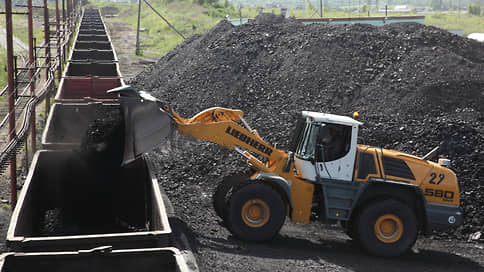Coal prices in Europe are rising due to the conflict of Israel and Iran

The energy coal supplied to Europe has risen in price by 7–9% since the beginning of June, as already happened with the gas, the prices of which are dispersed by fears regarding the rate of replenishment of reserves in the context of the conflict of Israel and Iran. This can also support coal quotes in other regions, but analysts are not yet sure that the trend is stable. And Russian coal miners hope that competitors from other countries will use the growth of European prices, reducing the presence in the market priority for the Russian Federation.
The cost of energy coal with a calorie content of 6,000 kcal per kilogram supplied to Europe jumped 8%for the first week of June, up to $ 102 per ton (CIF Ara), the Neft Research review said. According to the authors of the study, the growth continued on the week on June 9-15, reflecting the jump in European gas prices, caused by fears about the rate of replenishment of reserves due to the conflict of Israel and Iran. Since the beginning of June, coal quotes in Europe have grown by 7–9%, the NKR rating agency indicate.
Prices were also facilitated by interruptions in the supply of coal from Australia against the backdrop of floods and fears associated with the possibility of the strike of railway workers in South Africa, Kommersant’s interlocutor in the coal industry clarifies. In the NEFT Research review, it is noted that coal manufacturers from South Africa are faced with interruptions in work, since a long period of low prices undermined their profitability. The director of corporate ratings « Expert RA » Maria Kolomiyts adds that weather factors have recently been reducing the volume of solar energy generation in the main European markets.
Neft Research partner in consulting Alexander Kotov believes that rising prices is not a reflection of changes in real demand or proposal. “Over the past two weeks, gas prices are volatile against the backdrop of fear of interruptions due to geopolitics and weather forecasts. The increase in prices of recent weeks is rather a reflection of the short -term nervousness of the market, ”he explains. According to the analyst, without fundamental changes, coal quotes in Europe are either stabilized or returned to the previous levels.
The main suppliers of coal to Europe are the United States and Australia, occupying more than 60% of imports. Due to the sanctions of direct capabilities of coal sales to Europe, Russian coal miners do not. As the interlocutor of Kommersant in the industry explained, under these conditions, more and more vessels with coal are sent from ports without a well -known destination, and “trading pads” arise through which coal can be sold to Europe and other regions where there are prohibitions (see “Kommersant” of February 12).
According to Kommersant’s interlocutors in the coal industry, competitors from other countries, mainly from Australia and Canada, can use the growing trend in the EU market, which should reduce their pressure in the markets priority for the Russian Federation. But, they emphasize the sources of Kommersant, the formation of such a trend can be discussed no earlier than autumn.
The expert of the Institute of Energy and Finance, Alexander Titov, notes that prices in other markets can be slightly tightened after European ones. “There is arbitration. And suppliers such as South Africa, Colombia, distribute deliveries between Europe and Asia, choosing a market with a higher prize. And even Russia can show flexibility if there is an active demand for spoting batch of coal in the Turkish market, and redirect part of the volume there, ”the expert says.
If the growing trend in the western direction will be quite long -term, the prices that have formed will be able to ensure the profitability of supply even taking into account the transportation, the director of the group of corporate ratings of Akra Ilya Makarov admits. According to Neft Research, in the first week of June, the prices of Russian energy coal of 6000 kcal in the Baltic ports rose 1.5%, to $ 63.4 per ton (FOB), quotes in Taman were reduced by 1.4%, to $ 68.3 per ton (FOB). Prices in Turkey, taking into account the cost of freight (CFR), decreased by 3.1%, to $ 82.3 per ton.
The geopolitical instability, which caused the increase in prices in Europe, also contributes to the preservation of weak demand for new parties of energy coal in the Mena region (Maghreb and the Middle East). Buyers prefer to use stocks, indicate in Neft Research. As Alexander Kotov notes, Russian export of coal over the western direction is limited to the countries of the Middle East, mainly Turkey and the Indian market. And in Turkey, in recent weeks, demand has been weakened against the background of the growth of hydropower production and in general low electricity consumption, he adds.







